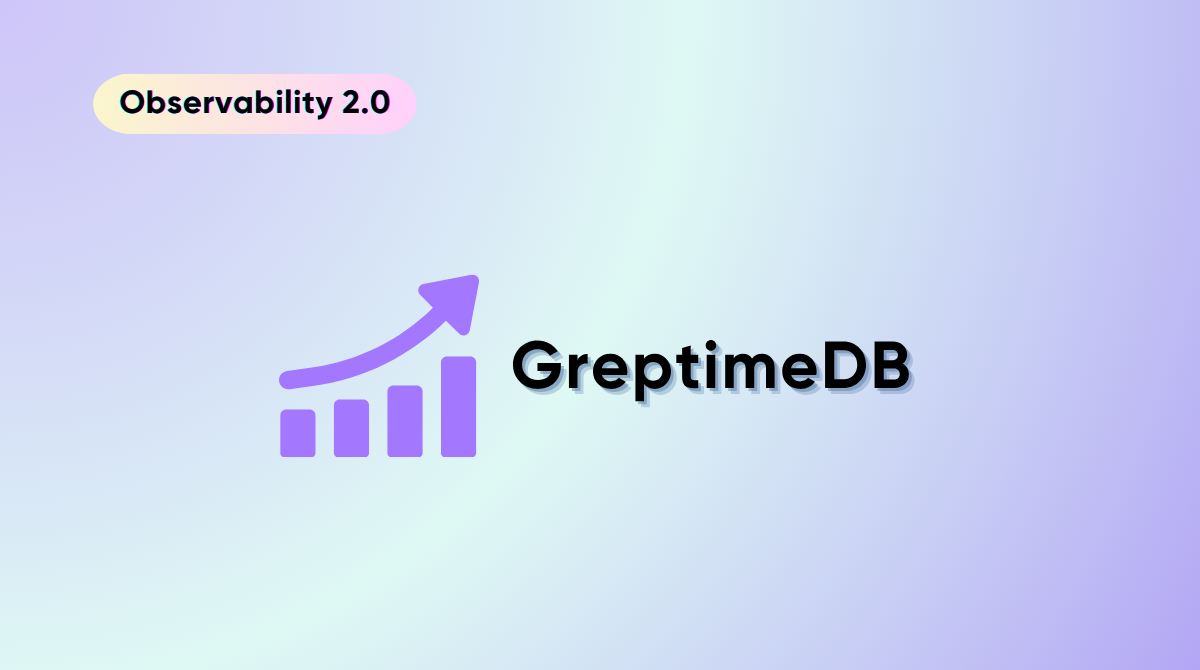
In today's complex IT landscapes, maintaining visibility across distributed systems isn't just nice-to-have—it's mission-critical. Yet most teams struggle with a fragmented approach to observability, juggling separate tools for metrics, logs, and traces. This piecemeal approach creates data silos, complicates troubleshooting, and bloats infrastructure costs.
Why Traditional Observability Approaches Fall Short
Traditional monitoring setups typically involve multiple specialized systems:
- A time-series database for metrics (like Prometheus)
- A document store for logs (like Elasticsearch)
- A specialized backend for traces (like Jaeger)
This fragmentation makes correlating issues across different signal types nearly impossible. When an alert fires, teams waste precious minutes jumping between dashboards, searching for the root cause across disconnected systems.
GreptimeDB: The Unified Observability Foundation
GreptimeDB represents a fundamental shift in the observability database landscape. Rather than treating metrics, logs, and traces as separate concerns requiring different systems, it provides a unified storage and query layer for all observability signals.
With the latest updates in v0.14, GreptimeDB has significantly enhanced its capabilities for handling the complete observability triad:
1. Unified Data Model
Instead of forcing you to normalize data into different formats, GreptimeDB's flexible schema accommodates all three pillars while maintaining the relationships between them:
- Metrics: High-performance columnar storage with time-series optimizations
- Logs: Full-text indexing with both Bloom and Tantivy backends
- Traces: Official support for OTel Traces ingestion and querying
2. Cross-Signal Correlation
The true power comes from querying across signal types. When an anomaly appears in metrics, you can immediately find relevant logs and traces within the same query—no context switching required.
3. SQL-First Approach
Unlike specialized query languages that create learning curves, GreptimeDB leverages SQL—a language most engineers already know. This dramatically reduces the time to insight for teams investigating incidents.
Real-World Benefits
Organizations using GreptimeDB's unified approach report:
- 40-60% reduction in MTTR (Mean Time To Resolution)
- 30-50% lower storage costs through improved compression
- Simplified operations by managing one system instead of three
Perhaps most importantly, having a unified view allows teams to shift from reactive troubleshooting to proactive optimization of their systems.
Getting Started
Ready to simplify your observability stack? Try GreptimeDB today with our cloud-hosted option that requires zero setup, or deploy it yourself using our comprehensive documentation.
Join the growing community of engineers who've discovered that unifying observability data isn't just more efficient—it fundamentally changes how quickly you can understand and resolve production issues.
About Greptime
GreptimeDB is an open-source, cloud-native database purpose-built for real-time observability. Built in Rust and optimized for cloud-native environments, it provides unified storage and processing for metrics, logs, and traces—delivering sub-second insights from edge to cloud —at any scale.
GreptimeDB OSS – The open-sourced database for small to medium-scale observability and IoT use cases, ideal for personal projects or dev/test environments.
GreptimeDB Enterprise – A robust observability database with enhanced security, high availability, and enterprise-grade support.
GreptimeCloud – A fully managed, serverless DBaaS with elastic scaling and zero operational overhead. Built for teams that need speed, flexibility, and ease of use out of the box.
🚀 We’re open to contributors—get started with issues labeled good first issue and connect with our community.
